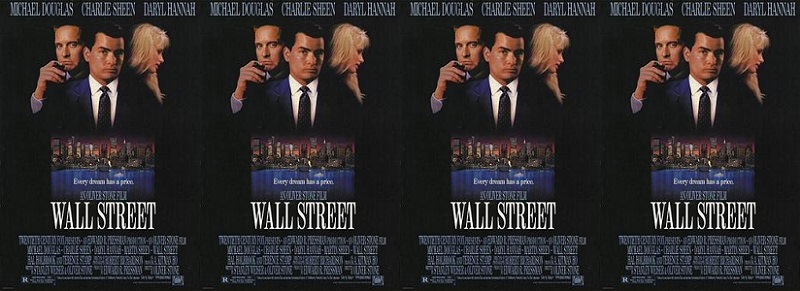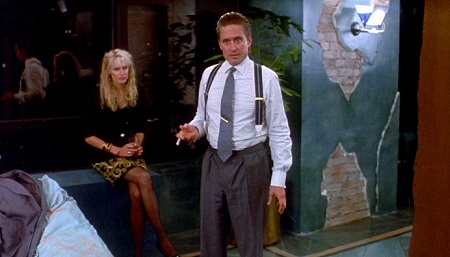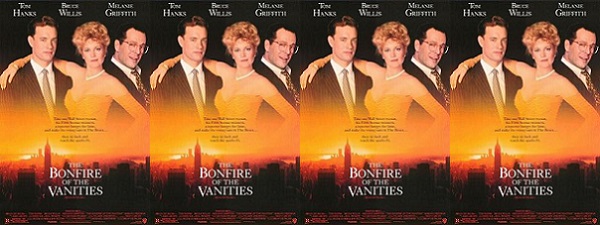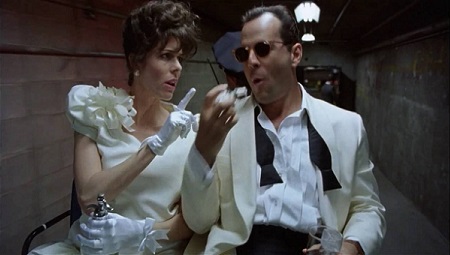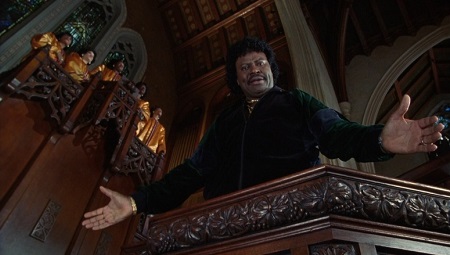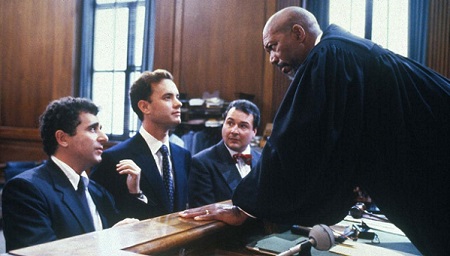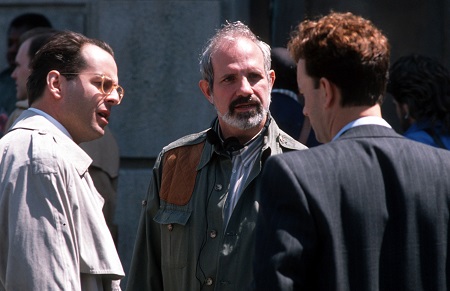The 1983 Robert C. Gallagher book Ernie Davis, The Elmira Express: The Story of a Heisman Trophy Winner tells the story of multiple firsts in the impressive college career and illness shortened life of national champion, Heisman Trophy winner and Syracuse University football player Ernie Davis. We look at the Charles Leavitt screenplay for the Gary Fleder movie The Express (2008) that came from that book.
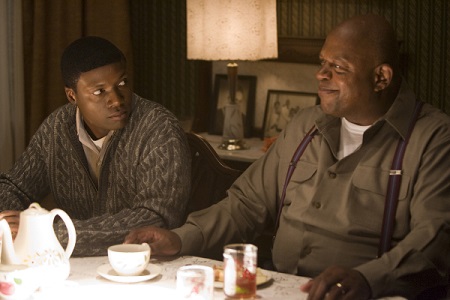
The story of Ernie Davis begins with Davis growing up first in Pennsylvania and, in later in Elmira, New York. It is in Elmira that a young Ernie Davis first plays runningback in an organized youth football league. A number of years later, Ben Schwartzwalder of Syracuse University recruits Davis with the support of the graduating Jim Brown, who would go on to excel with the Cleveland Browns. Rob Brown, Dennis Quaid and Darrin Dewitt Henson would portray Ernie Davis as an adult, Ben Schwartzwalder and Jim Brown.
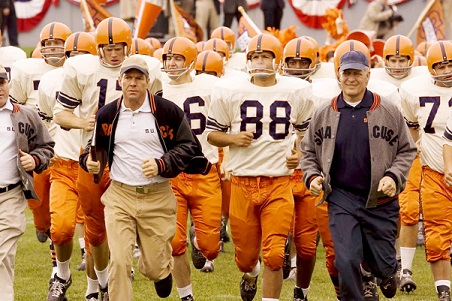
The sport of college football, a legacy of racism in Dallas, Texas made tangible through threats, and the effort to play The University of Texas at the Cotton Bowl Classic in Dallas for the 1959 championship on January 1, 1960 unfolds in the telling of The Express. An injured leg and biased officiating interject, as does further insult at the recognition banquet following the game. The outcome of both the game and the follow-up indicates something uplifting in the face of ugliness.
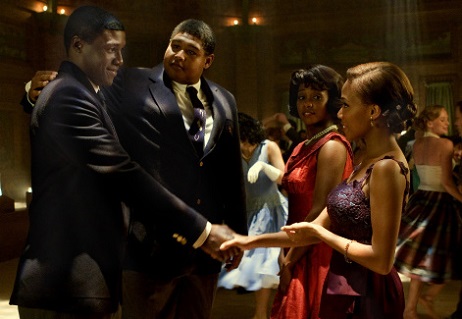
The story of Davis getting drafted by the Cleveland Browns, then of the National Football League (NFL), leads to the revelation of a life threatening disease during preseason efforts to get into condition for the coming season. The formal revelation by then owner Art Modell that the disease would keep Davis from formally fulfilling his professional dream happened matter-of-factly in the middle of practice. The formal announcement of the outcome was addressed with more class. Davis‘ recruiting of Floyd Little to Syracuse mirrors his own recruitment there with the aid of Jim Brown. Saul Rubinek and Chadwick Boseman portrayed Modell and Little, respectively.

As presented in passing in the movie, former United States President John F. Kennedy offered praise for Davis after the football player as a player and citizen following Davis‘ death. The tribute gave dignity to the sympathetic portrayal of Ernie Davis. I give The Express as directed by Gary Fleder 3.75-stars on a scale of 1-to-5.
Matt – Saturday, September 2, 2023

